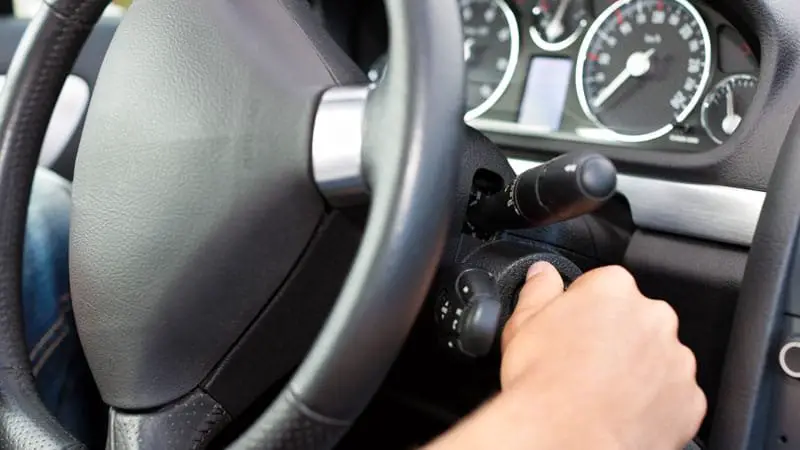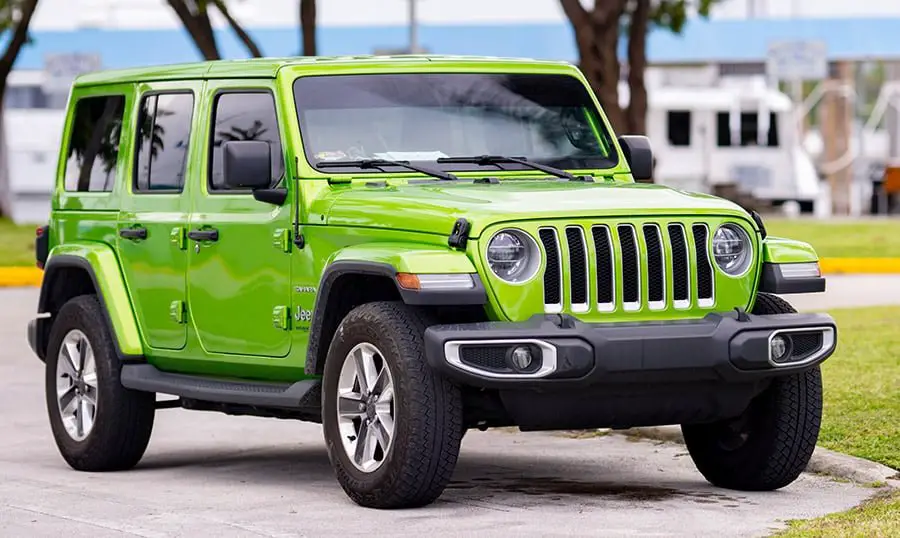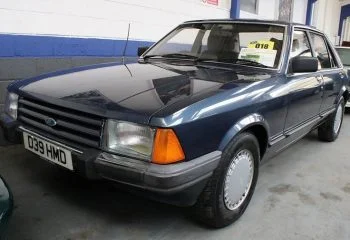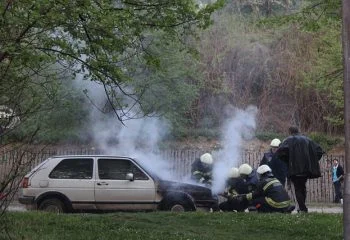Jeeps are awesome vehicles. They offer great off-road performance and can handle a variety of terrain.
Jeep shuts off while driving and won’t start, even when you’re in the middle of the road. And more often than not, your Jeep won’t start back up. So what’s going on?
This can be a very scary experience, but there are some things you can do to try and avoid it or fix the problem if it happens. In this blog post, we’ll discuss the causes of this issue and possible solutions. So, read on to learn more!
What's in this post?
5 Reasons Jeep Shuts Off While Driving and Won’t Start

Electrical problems
Electrical problems are a common issue for Jeep owners. The Total Integrated Power Module (TIPM) controls all of the electrical systems in the Jeep, and many owners have reported that their Jeep stopped working after driving around 50,000 miles.
This can cause the air conditioner, windshield wipers, lights, and radio to stop working. There are a few possible reasons for this issue. First, a loose connection or wire could be causing a power shortage. Second, the TIPM itself could be failing. Third, there could be an issue with the software that controls the TIPM.
Solution: Fortunately, there are a few things that you can do to troubleshoot this issue. First, check all of the connections and wires to make sure that they are tight and secure. Second, try resetting the TIPM by disconnecting and reconnecting the battery. If this does not work, you may need to replace the TIPM or have it flashed by a dealer.
Jeep Faulty Air Flow
As any car owner knows, the engine is essential for the proper functioning of the vehicle. The engine relies on a variety of sensors to regulate air and fuel flow, and one of the most important sensors is the mass airflow sensor (MAF).
The MAF sensor measures the density of the air entering the intake manifold and passes this information to the engine control unit (ECU). The ECU then uses this information, along with data from other sensors, to control the amount of fuel that enters the combustion chamber.
A faulty MAF sensor can cause a number of problems, including difficulty starting the engine, idling issues, decreased fuel mileage, and erratic jerking while driving. Therefore, it is important to have a MAF sensor that is in good working condition. If your MAF sensor is not functioning properly, it is best to take your Jeep to a mechanic so that they can diagnose and fix the problem.
Solution: To prevent this from happening, you should regularly clean out your MAF sensor. It should be in between the throttle body and the air filter. Replace the sensor if it is damaged. You will know if your sensor has gone bad if it triggers your check engine light and you see an OBD II trouble code.
Temperature Issue
A coolant temperature sensor is a device used to measure the temperature of a liquid or gas. Coolant temperature sensors are found in internal combustion engines, where they are used to monitor the temperature of the engine coolant.
Most coolant temperature sensors use electrical resistance to measure the temperature of the coolant, and send a signal to the engine computer, which uses this information to adjust the fuel mixture and ignition timing. This is essential for proper engine operation, as a warm engine requires less fuel than a cold engine.
A faulty coolant temperature sensor can cause poor engine performance and decreased fuel economy. Therefore, it is important to keep your coolant temperature sensor in good working order to ensure optimal engine performance.
Solution: If you notice that your Jeep’s temperature gauge is reading higher than normal, or if the engine is overheating, then you should have your Jeep inspected by a mechanic.
They will be able to diagnose the problem and determine whether or not the coolant temperature sensor needs to be replaced. In most cases, if the sensor is not working, it can be fixed by the mechanic. However, if it is not fixable, then you should replace it as soon as possible to avoid any hazards.
Bad Fuel Pump
Your Jeep won’t start, and you’re at a loss. It’s not the battery, and it’s not the alternator. What else could it be? Believe it or not, one of the issues could be your fuel pump. The fuel pump is responsible for transferring high-pressure fuel to the fuel rails.
If the pressure of the fuel is low, eventually your engine will die. You might be thinking of checking the check engine light to see if the fuel pump has gone bad, but unfortunately the check engine light won’t come on because the fuel pump is not monitored by the engine. So if you’re having issues with your Jeep starting, it might be time to check the fuel pump.
Solution: A fuel pump is an essential component of any vehicle, and it plays a vital role in delivering fuel to the engine. One of the most telltale signs that the fuel pump has gone bad is if the engine makes no noise when it is first started.
This can be a very alarming problem, as it may mean that the engine will stall in the middle of the road. If you suspect that your fuel pump may be failing, it is important to have it checked by a professional mechanic as soon as possible. Failing to do so can result in being stranded in an inconvenient or even dangerous location.
The ignition coil in Jeep is bad
The ignition coil is a vital component of your vehicle’s ignition system. It helps to transform the low voltage of your car’s battery into the high voltage needed to create a spark at the spark plug. This spark is necessary for combustion, which is what powers your vehicle. Without the ignition coil, your car simply wouldn’t go anywhere.
However, when the ignition coil goes bad, it can cause a number of problems. Your Jeep may have difficulty starting, or it may stall and misfire while you’re driving. You may also notice that your check engine light is blinking.
Poor fuel economy is another common symptom of a bad ignition coil. If you’re experiencing any of these issues, it’s important to get your Jeep to a mechanic as soon as possible so they can diagnose and fix the problem. Don’t let a bad ignition coil keep you from enjoying your Jeep to the fullest!
Solution: If you suspect that your ignition coil may be having issues, the first step is to check for any codes using an OBD II scanner. Codes P0362 or P0350 indicate a problem with the ignition coil. Once you have confirmed that the ignition coil is indeed the issue, you will need to replace it.
There are different types of ignition coils available, so be sure to get one that is compatible with your Jeep model. Installation typically requires some disassembly, so it may be best to leave it to a professional mechanic.
Conclusion
It is never fun when Jeep shuts off while driving and won’t start while we are on the move—especially when we don’t know what happened!
Hopefully after reading through this blog post though you have gained a better understanding about what might have caused this issue in your Jeep and learned some tips about how you can go about fixing it yourself without having to take it into a mechanic each time!
Remember though if you do think something more serious is going on then definitely take it into a professional so they can run further tests and make sure everything is okay before hitting the road again! Good luck!





